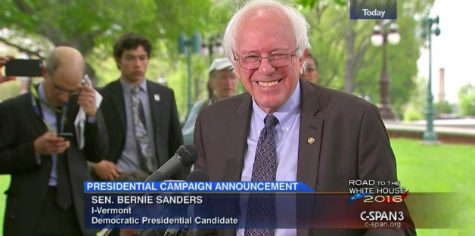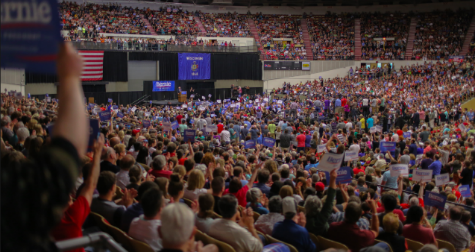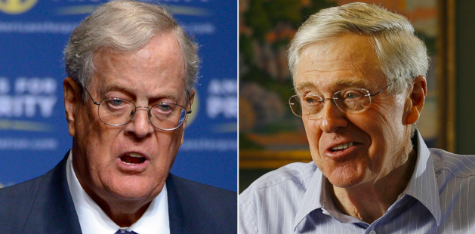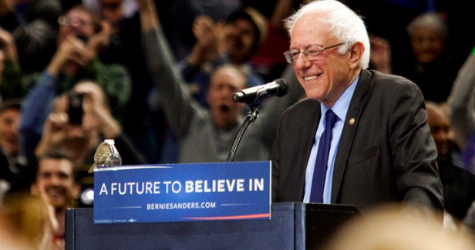As
some of you may know, I spent four years in Chicago in the early sixties as a
student at the University of Chicago.
I’ve
said this before, and I’ll say it again. Those four years in Chicago were an
extraordinary time for me and very much shaped my worldview and what I wanted
to do with my life.
I
should also say that while the University of Chicago was and is one of the
great higher education institutions in this country, the truth is that I
learned a lot more off campus than I did in classrooms.
As someone
who came from a working class family, Chicago provided me, for the first time
in my life, the opportunity to put two and two together in understanding how
the real world worked. To understand what power was about in this country and
who the people were who had that power. To learn a little bit about the
causation of wars; to learn about racism and poverty and other social ills.
My
years in Chicago gave me the opportunity to become involved in the civil rights
movement, in the labor movement, in the peace movement and in electoral
politics – experiences that significantly shaped my life.
As a
student at the University of Chicago, I became involved with a civil rights
organization called the Congress on Racial Equality, CORE, one of the leading
civil rights groups of that period.
Now,
some of you may not know this, but in the early 1960s, the University of
Chicago owned segregated housing.
Being
audacious young people, black and white, our chapter of CORE wanted to expose
that unjust housing system. And so our CORE chapter sent white couples and
black couples into the university-owned housing to pretend to look for an
apartment. And you can guess what happened.
When
the black couples showed up, there were just no apartments available. But a few
hours later, when one of our white couples went in, somehow, mysteriously, they
would have their choice of apartments.
After
documenting this clear pattern of racial discrimination, the students in CORE
demanded the university desegregate its housing. When they refused, we staged
one of the first ever civil rights sit-ins in the North, forcing the university
to acknowledge the situation and to consider serious policy changes.
While
what we were doing here in Chicago at the time was significant, it came nowhere
close to what young people our age were doing in the South in groups like SNCC,
the Student Nonviolent Coordinating Committee. We were protesting – but they
were putting their lives on the line, and some were getting killed.
In
1963 I, along with a busload of other students, took a 600-mile ride from
Chicago to Washington, D.C. for what remains in my mind as an unforgettable
day. We went to the nation’s capital to participate in the March on Washington
for Jobs and Freedom, led by the Reverend Dr. Martin Luther King, Jr. – one of
the great leaders in American history. I had the honor of being there to hear
him deliver his now-famous “I Have A Dream” speech, and that was a day I have
never forgotten.
That
same year, we knew we had more to do in Chicago.
It had
been nine years since the Brown vs Board of Education decision, but the school
officials in Chicago had still refused to meaningfully desegregate the city’s
public schools. Black schools were overcrowded and underfunded, with many
students forced to share chairs and desks. Meanwhile, a report at the time
found over 380 white classrooms were completely empty.
But
instead of putting black children in those empty classrooms, the school
officials decided to put old trailers on the black school grounds. We called them
“Willis Wagons,” after the Chicago school superintendent of that time, Benjamin
Willis.
These
trailers were a monstrosity. Students would boil in the heat, and freeze in the
cold. They were infested with rats. They were an insult and a disgrace – and the
community fought back.
One
day, many of us went to the spot where they planned to put the trailers. We
were corralled by a police line and told not to cross that line.
Well,
some of us did. And, of course, we were arrested and thrown into paddy wagons.
We spent that night in jail, until we were bailed out the next morning by the
NAACP.
The
reason I tell you all of this is because my activities in Chicago taught me a
very important lesson.
Whether
it is the struggle against racism, or sexism, or homophobia, or corporate
greed, or environmental devastation, or war and militarism or religious bigotry
– real change never takes place from the top on down. It always takes place
from the bottom on up when people, at the grassroots level, stand up and fight
back. That's a lesson I learned in Chicago, and a lesson I've never forgotten.
Have
we made progress in civil rights in this country since the early 1960s? No
question about it. Do we still have a very long way to go to end the
institutional racism which permeates almost every aspect of our society?
Absolutely.
We
have, in recent years, seen a major spike in hate crimes – against blacks, and
Muslims, and Jews, and Latinos and other minorities.
And,
over the last number of years, we have seen a terrible level of police violence
against unarmed people of color – people killed by the police who should be
alive today.
We
know that African Americans are twice as likely to be arrested, and almost four
times as likely to experience physical force in an encounter with the police.
Today,
black men are sentenced to 19 percent more jail time for committing the exact
same crime as white men, and African Americans are jailed at more than 5 times
the rate of whites.
All of
this and more is why we are finally going to bring about real criminal justice
reform in this country. We are going to end the international embarrassment of
having more people in jail than any other country on earth. Instead of spending
$80 billion a year on jails and incarceration, we are going to invest in jobs
and education for our young people. No more private prisons and detention
centers. No more profiteering from locking people up. No more "war on
drugs." No more keeping people in jail because they're too poor to afford
cash bail.
And by
the way, when we talk about criminal justice reform, we're going to change a
system in which tens of thousands of Americans every year get criminal records
for possessing marijuana, but not one major Wall Street executive went to jail
for destroying our economy in 2008 as a result of their greed, recklessness and
illegal behavior. No. They didn't go to jail. They got a trillion-dollar
bailout.
Our
campaign is about fundamentally ending the disparity of wealth and power in
this country. But as we do that, we must speak out against the disparity within
the disparity.
Today,
the average black family has one-tenth the wealth of the average white family.
Today,
the infant mortality rate in black communities is more than double the rate for
white communities, and the death rates from cancer and almost every other
disease is far higher for blacks. Black women are three and a half times more
likely to die from pregnancy than white women.
Today,
Flint, Michigan is still without new pipes for clean water, and there are 3,000
other Flint, Michigans across the country – neighborhoods with lead rates that
were double those of Flint during the height of its crisis.
Today,
redlining prevents black-owned businesses from getting loans, and predatory
lending results in higher interest rates in the African American community.
Whether
it is a broken criminal justice system, or massive disparities in the
availability of financial services, or health disparities, or environmental
disparities, or educational disparities – our job is to create a nation in
which all people are treated equally. That is what we must do, and that is what
we will do.
Brothers
and sisters: we have an enormous amount of work in front of us and the path
forward will not be easy.
But if
we stand together believing in justice and human dignity, the truth is that
there is nothing we cannot accomplish.
Let us
go forward together.
In
solidarity,
Bernie
Sanders
Add your name if you agree: it’s time to
transform our country and create a government that works for all of us, not
just the billionaire class.
Bernie cannot do it alone. We will only succeed if we are in this fight together. Not me. Us.
Bernie cannot do it alone. We will only succeed if we are in this fight together. Not me. Us.

Paid for by Bernie 2020
PO
BOX 391, Burlington, VT 05402
No one person, not even Bernie Sanders, can take on
Trump and the billionaire class alone.
We have an official FEC fundraising deadline coming up and we're
trying to report as many individual donations as we possibly can. Make a contribution today before the FEC
deadline comes to a close.








